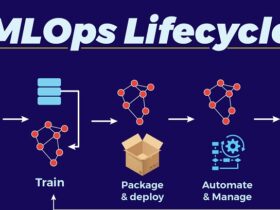Fast shipping, filled shelves and swift order fulfillment don’t happen by accident. They owe their existence to a fine-tuned system that operates behind the scenes — supply chain management. In a fast-moving world, where customers expect everything yesterday and international competition is relentless, how you handle your supply chain can mean the difference between making it in business — and breaking it.
What Is Supply Chain Management?
From the raw materials to the way in which the products are delivered to the customer, supply chain management (SCM) is designed to help you streamline the entire process. It’s a system that connects suppliers, manufacturers, warehouses, logistics companies and retailers into one network.
SCM ensures that products flow smoothly, costs remain low and customers receive what they want when they want it.
Critical The supply chain can be broadly divided into three critical elements.
For every supply chain to work well, it relies on five important steps:
● Planning
Predicting demand, determining the right inventory levels and matching production schedules with fluctuations in the market.
● Sourcing
Selecting suppliers, contracting, and purchasing raw materials or components.
● Production
Able to convert raw materials into final products efficiently and at the proper quality.
● Logistics & Distribution
Transporting and storing items to move them from where they are to where they need to be on time.
● Returns & Support
Managing returns, repairs and customer service after the sale.
Why It’s So Important
Good supply chain management, when done well, gives a company a huge competitive advantage:
- Reduced costs through waste reduction and better sourcing and transportations
- Faster deliveries by streamlining processes
- Greater flexibility to manage demand spikes or interruptions
- Deeper analytics with real-time tracking and data tools
- More profits from more efficiency and better planning
In other words, a robust supply chain equals a more robust business.
Technology is Changing the Game
Today’s supply chains run on smart tech. Digital tools are helping companies and factories in your supply chain to stay a step ahead, from AI that predicts customer demand to sensors that track packages in real time.
Cloud systems enable teamwork and access to live data, while automation accelerates tasks both in warehouses and on the road. Not only do these tools minimize risk and increase accuracy, they assist businesses in making faster and better decisions.
Who Benefits from SCM?
Any business that deals in physical products — whether retail, manufacturing, e-commerce or wholesale — requires good SCM. Even service-oriented businesses with complicated logistics requirements can benefit.
If you rely on getting the right product to the right place at the right time to keep your business humming, you need a good supply chain strategy.
Final Thoughts
Supply chain management isn’t just a back-office utility any more — it’s integral to business strategy. It’s the link to every department, it affects every customer, and it’s significant on every dollar that comes in.
In a fast-paced world that is more unpredictable than ever, strong supply chain management is a competitive advantage that enables businesses to expand, compete and grow.










